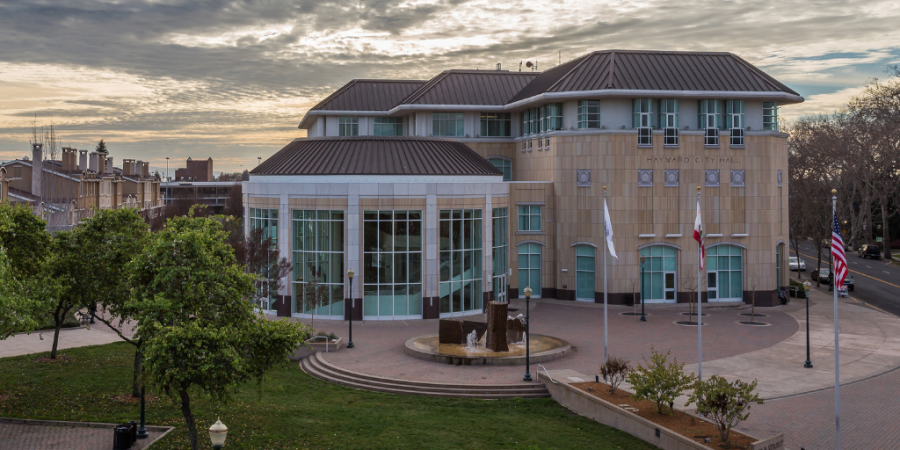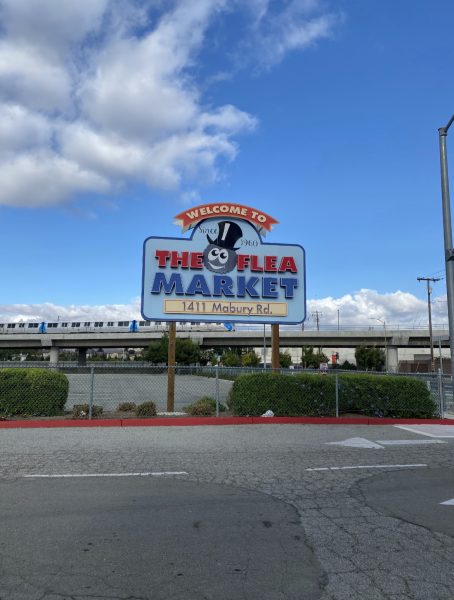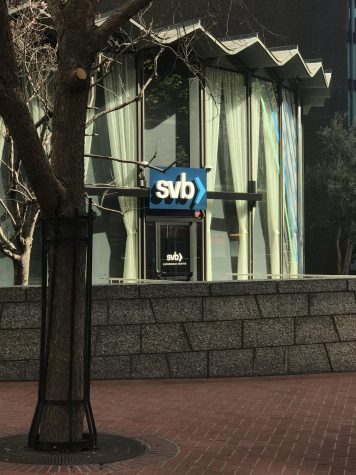Hayward City Council Hopefuls
November 3, 2022
As the Nov. 8 midterm elections draw near, Hayward residents are tasked with selecting their next mayor and two City Council members following Mayor Barbara Halliday’s term expiration, Councilmember Sara Lamnin’s career transplant to the Hayward Area Recreation and Park District, and Councilmember Aisha Wahab’s ambitions for California State Senate.
With less than a week away from election day, Mark Salinas is running unopposed for the mayoral position. Meanwhile, seven candidates are vying for the two coveted vacancies in City Council, among them students, educators, small business owners, community organizers, and city familiars.
Issues of public safety and housing stability domineer candidate rhetoric and voter interest alike.
Dan Goldstein — a 15-year Hayward resident and a city planning commissioner of seven years — is advocating for “clean, walkable, and safe neighborhoods” by expanding police responsiveness and establishing neighborhood groups for community policing. Critical of neighborhood watch programs due to the excessive commitment to civilian vigilance and ensuring distrust, Goldstein wishes to nurture and leverage neighborhood groups as a straightforward remedy for local disputes.
“I don’t want people to feel like they have to or should [police their community]; what we want is neighborhoods to cooperate,” exclaimed Goldstein, suggesting that “by putting together these neighborhoods groups, people will be comfortable talking to each other and looking for solutions amongst themselves.”
Hayward’s crime is not native to the city, according to Goldstein. The self-proclaimed public servant asserts that the city’s perceived seedy reputation can be attributed to organized criminal cells based out of Oakland, San Jose, and Fremont. “I have worked on a project that lead to the arrest of 18 people involved in auto theft two years ago, and those people were from all over the Bay,” Goldstein stated, reinforcing his belief that traveling criminal organizations are actively undermining resident safety and feeding into a distorted narrative of a dangerous Hayward.
To Goldstein, “dispelling the myth that Hayward is more crime-prone than other areas” is a fundamental part of attracting business interests and job prospects to the area.
Supportive of Goldstein’s initiative for greater public engagement in community policing, Michael Lema — former marine, journeyman electrician, and current student — advocates for additional police funding for escalation training and surveillance system installation at public transit stations.
“I want people to feel safe while using public transportation, and Hayward could invest some money in security cameras at certain bus stops to monitor them and make people feel a little more comfortable,” said Lema.
Cognizant of bad actors within law enforcement, Lema contends that increased funding is necessary for a better police force. “Bad cops need to be held accountable for their actions, but I don’t think we should cut their funding,” reasoned Lema, further explaining that training police in diffuse tactics will necessitate financial commitment. In an ideal scenario, Lema “would want community service officers to work with neighborhood watch captains.”
To protect storefronts along and incentivize businesses to open up shop along B-Street, Lema proposed contracting private security to address the ongoing shortage of police officers within the police department: “The city can hire third-party security to patrol B-Street to have a presence of security there.”
Rather than merely sustain existing ventures along the commercial artery, Lema believes in granting tax breaks as a method of luring businesses to Hayward, hence funneling investment into the city, creating local employment opportunities for residents, and spurring long-term economic growth.
Education worker Amal Issa and Hayward community services commissioner George Syrop, likewise, support the push toward community policing. Once falling victim to grand theft auto, Issa welcomes heightened police presence and deepening public trust in law enforcement via community policing instead of abiding crime rates. In Issa’s view, “people doing as much as they can to protect their property,” yet individual efforts prove futile in the face of a systemic issue.
Hayward Community Coalition community organizer, activist, and corporate-free candidate Syrop opposes further endowment of the police by public funds, challenging the perception of policing as tantamount to public safety. Syrop endorses and campaigns for the expansion of non-armed community policing and diverting financing away from law enforcement towards underfunded community services, such as education, housing, and social services.
For many candidates, housing security and economic prosperity are invariably linked to one another.
“In the 80s, when I graduated from college, there was no way that I could afford a home in the neighborhood that I grew up in, so I had to move away to where the jobs were,” Goldstein revealed.
Since then, Goldstein argued that Hayward has made considerable strides toward accessible, inclusive, and affordable housing via the Homekey Program, Navigation Center services for unhoused individuals, and limited admission of in-lieu fees by the city from developers, allowing more units to be built in a shorter period. Thus, Goldstein plans to enlarge the scope of the aforementioned programs, holding to the belief that “we owe it to the community to find a way to find an approach to housing.”
A self-appointed progressive candidate, Syrop believes that existing rent alleviation programs are insufficient under the current parameters. According to Syrop, 47% of Hayward residents and small businesses are renters, highlighting rent stabilization as an issue of utmost significance. “We aren’t building housing as quickly,” Syrop explained, stating that Hayward is locked into a vicious “game of catch-up.”
In response to rent fluctuations, Syrop suggested implementing comprehensive just-cause renter protections and vacancy tax to ensure that all properties are properly utilized and are on the market. “Growth and development that is sensitive to working-class citizens” through housing stability and union expansion is Syrop’s vision for Hayward.
As a Foundation for California Community Colleges educator, Issa is an advocate for incentivizing local teacher education through bonuses and incentive schemes, such as housing stipends, loan forgiveness, and tuition waivers for future teachers — otherwise, replicating the success of Chabot College’s “Grow Our Own” program on a broader scale. In Issa’s view, training teachers will contribute to a well-integrated, educated community.

















